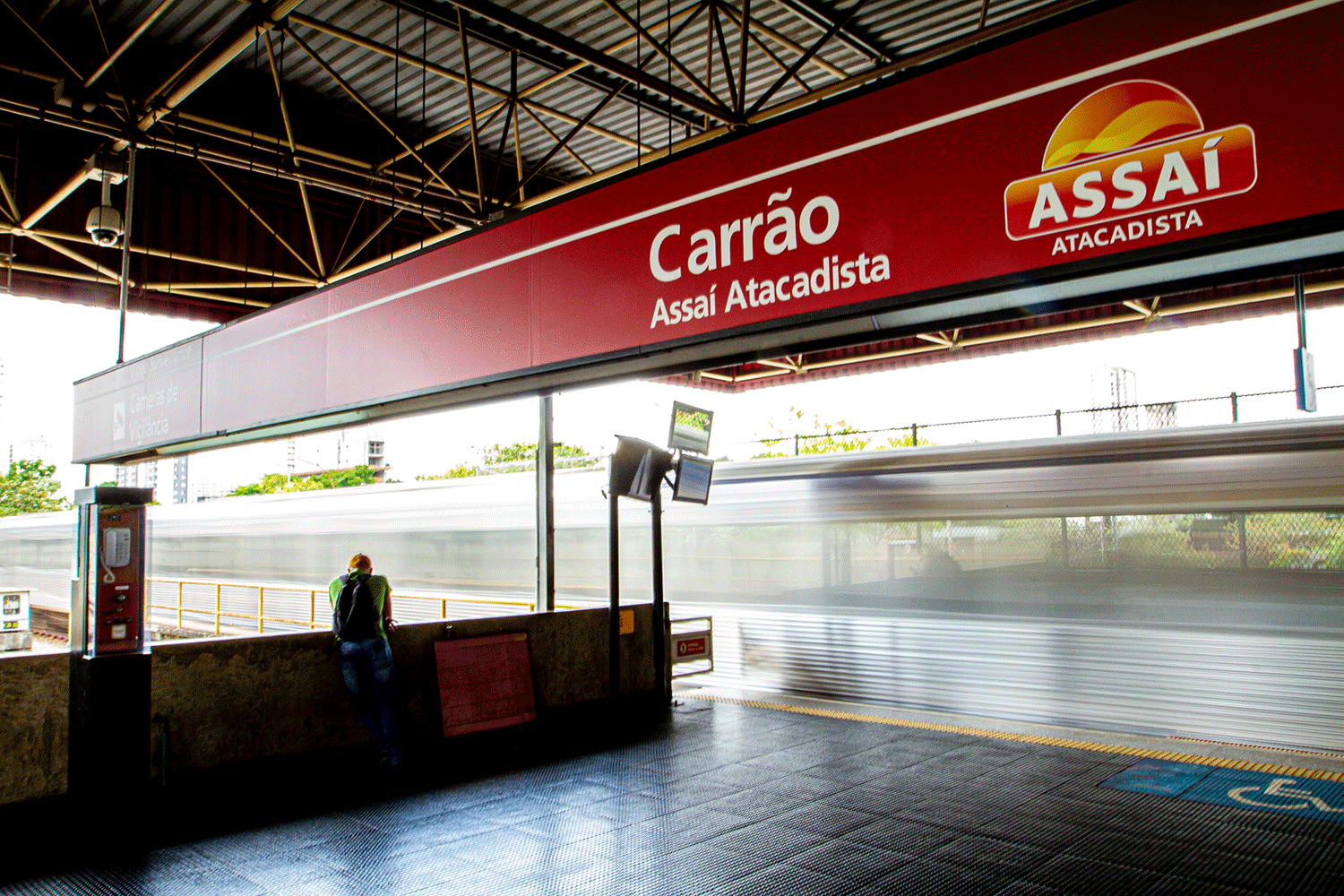São Paulo residents who frequent the Carrão, Penha, and Saúde subway stations will have noticed a small change in the last year or so. These three stations, named after the neighborhoods in which they are located, have gained an appendix in the form of a corporate add-on. Carrão station, for instance, is now “Carrão-Assaí Atacadista,” after the Brazilian cash-and-carry brand.
This is because the naming rights of these three stops have been sold to private corporations, for whom associating their brand with a public transport station is a publicity strategy.
In total, four São Paulo subway stations have had their naming rights bought by Digital Sport Multimedia (DSM), a marketing company that then sells the rights on to retailers such as Assaí. Clinícas station, located next to one of the city’s main hospital complexes, had the rights to its name bought by DSM in August, but having not yet been sold on, that station has yet to see its name adorned (or sullied) by corporate branding.
The São Paulo metro operator, a private firm controlled by São Paulo state, began looking into the possibility of selling station naming rights in mid-2020, as it sought solutions to the financial pinch caused by the Covid pandemic. After receiving the go-ahead, it held its first naming rights auctions in June 2021.
The lion’s share of the metro system’s income comes from transport fares. The megacity’s subway system transported over 5.3 million passengers per day prior to the pandemic, and charted gross revenue of BRL 3 billion (USD 580 million) in 2019. This figure fell by 50 percent in 2020, and the company posted a BRL 1.7 billion loss that year.
“There is a need for transport operators to increase their revenue. Income from transport fares is insufficient to cover the costs of running the service,” Sergio Avelleda, an urban mobility specialist and former president of the São Paulo metro company, tells The Brazilian Report. Even outside of Covid years, the São Paulo metro is an enterprise that functions at a loss.
Although the practice is more widespread...


 Search
Search






































